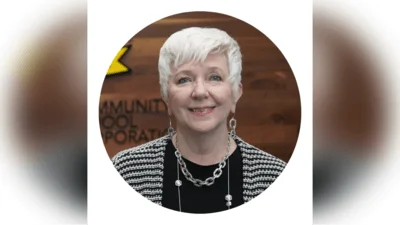Franciscan Health Specialist Urges COVID-19 Patients To Seek Antiviral Medications Upon Diagnosis
A Franciscan Health infectious disease physician is urging patients who test positive for COVID-19 to ask their healthcare providers if antiviral medications are right for them immediately upon diagnosis.
"What we're seeing is a lot of patients who test positive, then a week later are calling their physicians saying they still don't feel well, and by then, it's too late to start taking the antivirals," said Erica Kaufman West, MD.
"We need to educate patients to understand that they have to start taking the antivirals within five days of symptom onset. If we can get patients informed so they can advocate for themselves or their family members, it will benefit all of us."
Oral antivirals, like Paxlovid, are used to treat mild-to-moderate cases of COVID in patients who are at high risk for severe complications. The medication is approved for adults and for children ages 12 and up who weigh at least 88 pounds. Paxlovid is available free of charge.
"Step one is to be vaccinated and boosted," Dr. Kaufman West said. "Those people for the most part don't have serious consequences if they are infected. Step two, if you feel sick, test earlier rather than later. If you do test positive at home on your own, contact your doctor and ask if antivirals are right for you."
Dr. Kaufman West said Paxlovid has some drug interactions, so patients should be sure to share their medication lists with their healthcare provider and pharmacist to ask if there are any risks.
Franciscan Health Michigan City has specially trained pharmacists, nurses and medical assistants available to assist Franciscan Health Network physicians with questions about whether antivirals are best for their patients.
"Right now, they're averaging about 50 calls a week helping primary doctors manage these cases," she said. "We want patients to know so they can talk to their doctors and ask them to seek this assistance as well."
Dr. Kaufman West said if it's after hours on a Friday or on a weekend when a primary care physician may not be available, going to a Franciscan ExpressCare facility is a good option because they can both administer the test and prescribe antivirals.
Pharmacists can dispense Paxlovid without a prescription but require a patient's medical records within the last 12 months, copies of most recent blood tests and a full list of medications. Working directly with your physician or within your physician network makes the process faster and easier, allowing patients to get the antivirals within the required five days of symptom onset.
For patients who can't take oral antivirals, monoclonal antibody treatments may be an option. Those intravenous treatments are an "absolute last resort," she said, and also must be started within seven days, making early testing key.
Monoclonal antibody infusions are administered at Franciscan Health Michigan City with trained professionals. Patients can ask if the treatment is right for them if they are unable to take antiviral medications.
According to the Centers for Disease Control, the COVID-19 community level is high in 65% of Indiana counties including Lake and Porter counties. When community levels are high, the CDC recommends wearing a mask indoors in public, staying up to date on COVID-19 vaccines and getting tested if symptoms develop.
Dr. Kaufman West said she is seeing a slight uptick in COVID hospitalizations in her patients, but the numbers are still very low.
"Instead of one, maybe we have three or four," she said. "It's nothing like it was in the winter season. Last year, we saw an uptick around this time but it hasn't translated to hospitalizations. I'm hopeful that these variants, while much more contagious, are less virulent. We also have more antibodies now and our own herd immunity is revving up."
Dr. Kaufman West said her hope is with increased education, more patients will be able to advocate for themselves and their loved ones. Doing so can help them get the antiviral medications they need to reduce the duration and severity of symptoms and keep patients out of the hospital.
"Education is power," Dr. Kaufman West said. "Just making sure people know what's out there so they can ask and make informed decisions is really key."
Original source can be found here.




 Alerts Sign-up
Alerts Sign-up